PRESS RELEASES
October 21, 2024 / VIEW
May 3, 2024 / VIEW
April 4, 2024 / VIEW
March 6, 2024 / VIEW
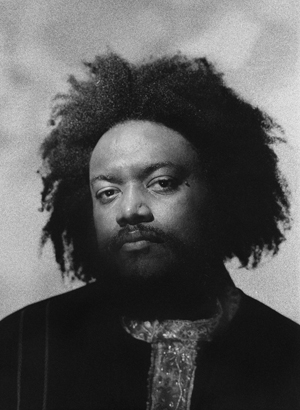
photo credit: Vincent Haycock / click for hi-res version
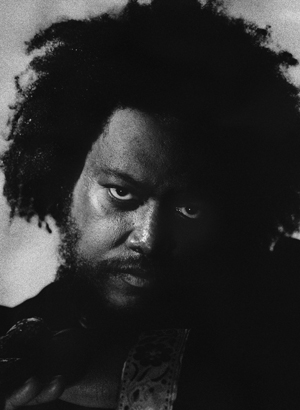
photo credit: Vincent Haycock / click for hi-res version
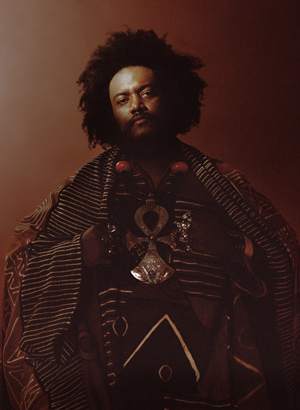
photo credit: Vincent Haycock / click for hi-res version
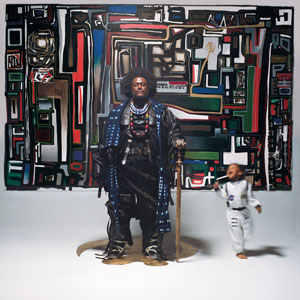
album art / click for hi-res version
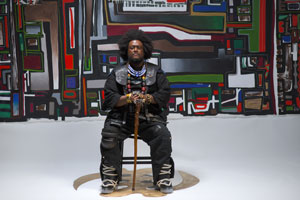
photo credit: B+ / click for hi-res version
KAMASI WASHINGTON
FEARLESS MOVEMENT
There is a tender proposition behind composer, bandleader, and saxophonist Kamasi Washington’s fifth studio album, Fearless Movement: we’re all born elastic, and if you don’t use it you lose it. Dance was on Washington’s mind while making this record, and it serves as a metaphor for this practice of flexibility. “When people hear that I'm making a dance album, it’s not literal,” Washington says. “Dance is movement and expression, and in a way it’s the same thing as music — expressing your spirit through your body. That’s what this album is pushing.”
Turning his attention to dance, and bringing the audience with him, is a natural progression of Washington’s ongoing study of music as a means of connection. His 2015 album The Epic, as well as 2018’s Heaven and Earth were received by critics and audiences as a kind of intervention, across generations and genres. Both of those records were big offerings, heavy on choir and strings, but Fearless Movement offers something different: it’s still immense, but more rhythmic — and this time he’s brought the rappers into his world.
Collaboration, and a multi-disciplinary perspective, is key to Washington’s process. It’s what keeps him creative. The release of Heaven and Earth was accompanied by a short film, “AS TOLD TO G/D THYSELF,” that was made with the filmmakers Bradford Young, Terence Nance, and Jenn Nkiru, and premiered at the Sundance Film Festival. In the years since, he’s been playing in the musical ‘supergroup’ DINNER PARTY with friends Robert Glasper, Terrace Martin, and 9th Wonder. And the original score he wrote for the Michelle Obama documentary Becoming was nominated for Grammy and Primetime Emmy Awards in 2020.
“The world stopped, but I definitely didn’t stop,” Washington says. Fearless Movement began in the days of the global pandemic. “My daughter was born right in the middle of it. Those are two pretty big monumental things happening simultaneously. One that would change anyone, and one that did change everyone.” He’d started working on a ballet and was mulling over ways to connect dance to his own music.
“The kind of music I make is not necessarily associated with dance, even though I feel like the more expression in the music, the more it can inspire you to move.” Reconciling his music with that natural human desire for movement forced him to get out of a comfort zone — as did fatherhood.
Parenting has renewed Washington with a sense of gratitude. Fearless Movement opens with a prayer in Ge’ez, the language of the Ethiopian Orthodox Bible. “‘Lesanu’ is a dedication to a friend of mine who passed away, and a moment to give thanks for my path,” he says. “Being a father means the horizon of your life all of a sudden shows up. My mortality became more apparent to me, but also my immortality — realizing that my daughter is going to live on and see things that I'm never going to see. I had to become comfortable with this, and that affected the music that I was making.”
With touring on pause, they spent her early years together listening to Washington’s favorite records by John Coltrane, Ornette Coleman, and Eric Dolphy. “I wanted to show her all of the best music,” he says. And one day, at just shy of two years old, she came up with a melody. “We were playing around on the piano, and she just kept playing it over and over again,” he says. That tune became the song “Asha The First.”
The collaborative instinct that defines his music-making took hold. Washington and his long-time band members recorded the melody, leaving some wide open spaces for a potential guest to fill. “The band was playing with a lot of gusto for someone to play over it. It sounds like an instrumental solo,” says Washington. But he had a different plan. “The Los Angeles underground is very much used to hip-hop over music that is not a loop. In Leimert Park, where I grew up, the intersection between jazz and hip hop is intertwined.” So he called in Taj and Ras Austin, the rap duo Coast Contra, and sons of L.A. rapper Ras Kass, who he’d found while “messing around on YouTube.” Washington’s long-time friend and collaborator Thundercat also appears on “Asha The First.”
Washington isn’t the only one breaking with convention on Fearless Movement. Andre 3000, perhaps rap’s finest stylist, whose guest verses are coveted by all, offers up his very first flute feature on “Dream State.” A song about moving on from struggle is an apt contribution from an artist searching for freedom. “Andre is connected to music in a way that’s inexplicable, and he still has that same magic on the flutes,” says Washington.“That honesty, and that trueness to his spirit is there.” When he showed up to the studio with a bag of flutes, Washington and his bandmate and fellow Fearless Movement composer Brandon Coleman invited him to jam. Together, they found the song on the first pass. “We’re not easy musicians to swim around with. We moved kind of fast and free, and he was just with us,” says Washington.
There’s a tight-knit feeling to Fearless Movement, which continues to connect Washington’s work to Black music in L.A. across time — from past to present to future. On the laid back and funky “Get Lit,” which is about using the light within each of us to build up our communities, Washington brings together the legendary bandleader George Clinton and rapper D Smoke for “one of the coolest tracks on the album.”
This ethos of elasticity and possibility extended to members of Washington’s band, some of whom have writing credits on the album. It also features regular collaborators like vocalist Patrice Quinn, fellow saxophonist Terrace Martin, bass player Thundercat, and drummer Ronald Bruner Jr. DJ Battlecat and BJ The Chicago Kid.
Being orbited by so much change lends a suppleness to these new songs, thematically and musically. “I know people are kind of used to me doing the big orchestras, but that just wasn’t what this music was calling for,” says Washington. “There’s a degree of insecurity that you feel, but I always have to ask myself, ‘Is this what you’re hearing?’ If you try to do something that isn't what you're hearing or feeling, will you be happy?”
For more information, please contact Carla Sacks or Reid Kutrow at Sacks & Co., 212.741.1000.